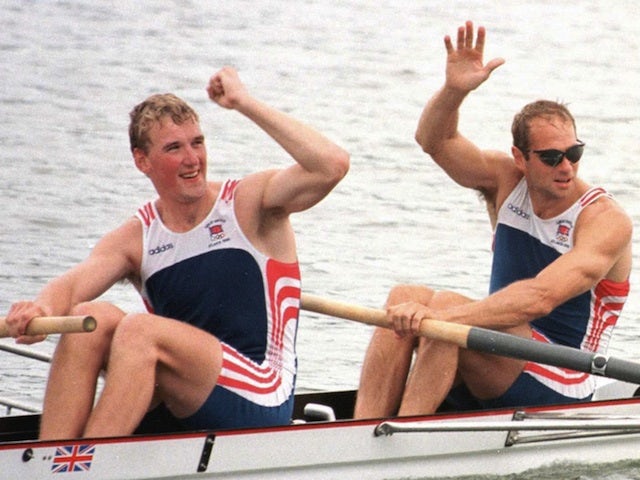Now and again a true great of a sport comes along, wins everything in sight and then retires. On other occasions, two come along a few years apart and together reach the top of their respective sport. In Sir Steve Redgrave and Sir Matthew Pinsent, this is exactly what British rowing enjoyed throughout the 1990s.
Redgrave was born eight years before Pinsent, but that did not stop the pair forming a formidable rowing partnership the minute Pinsent turned international rower in 1989. As a pair, their first event was the 1990 World Rowing Championships and they won bronze. A good start, but things were about to get so much better.
From then on, gold was the only colour the pair knew. The disappointment of bronze in Tasmania gave way a year later to gold in Vienna. It was Pinsent and Redgrave's first gold, but one that would be followed by what can only be described as a glut throughout the rest of the decade. On this day in 1994, the two won their third Worlds gold of four in the coxless pairs in Indianapolis - and it was arguably their most thrilling.
 © Getty Images
© Getty Images
The second Championships gold had come the previous year in Racice, with the Olympic gong added to their haul in 1992. By the time the Indianapolis event came around the two were firmly the pair to beat in rowing. There were so few flaws to their technique that seemingly the only way they could lose was by making mistakes.
Even so in the build-up to the 1994 final, according to Pinsent afterwards, the boat had developed a crack. They considered asking the organisers for more time to repair it but after a discussion with the manufacturer decided to risk it. Concerns over the boat led to a terrible start and the British pair found themselves having to catch the Germans just as they did in Lucerne earlier in the year.
Australia and Canada, too, were ahead of Britain early on, with the Germans almost a full length ahead after the first 500 metres. They had time on their side, the Brits, but there was a lot of work to do to overtake three others teams. The alternative was to be beaten for the first time since 1991, which was not an option for them.
Peter Holtzenbein and Thorsten Streppelhoff in the leading boat were three strokes per minute ahead of the Brits at around the half-way mark, with Pinsent and Redgrave getting up into third just after. The gap to the Germans, however, was not yet being reduced. The Brits had to up their stroke rate, which is exactly what they did in the second half of the race.
Into the final quarter of the race, Britain came into their own as they so often did. They breezed past Australia and, now up to 40 strokes per minute, were just half a length down on the Germans. With 200m to go in very choppy waters Redgrave and Pinsent peaked at 45 strokes and absolutely sailed past the leaders to take the win with relative ease in a time just outside the world record they set in Lucerne.
This was the sort of performance that kept the pair on top of their sport for so long. The fear that they struck in opponents when chasing them down helped them on their way to a grand total of seven World Championships and two Olympic gold medals together.








